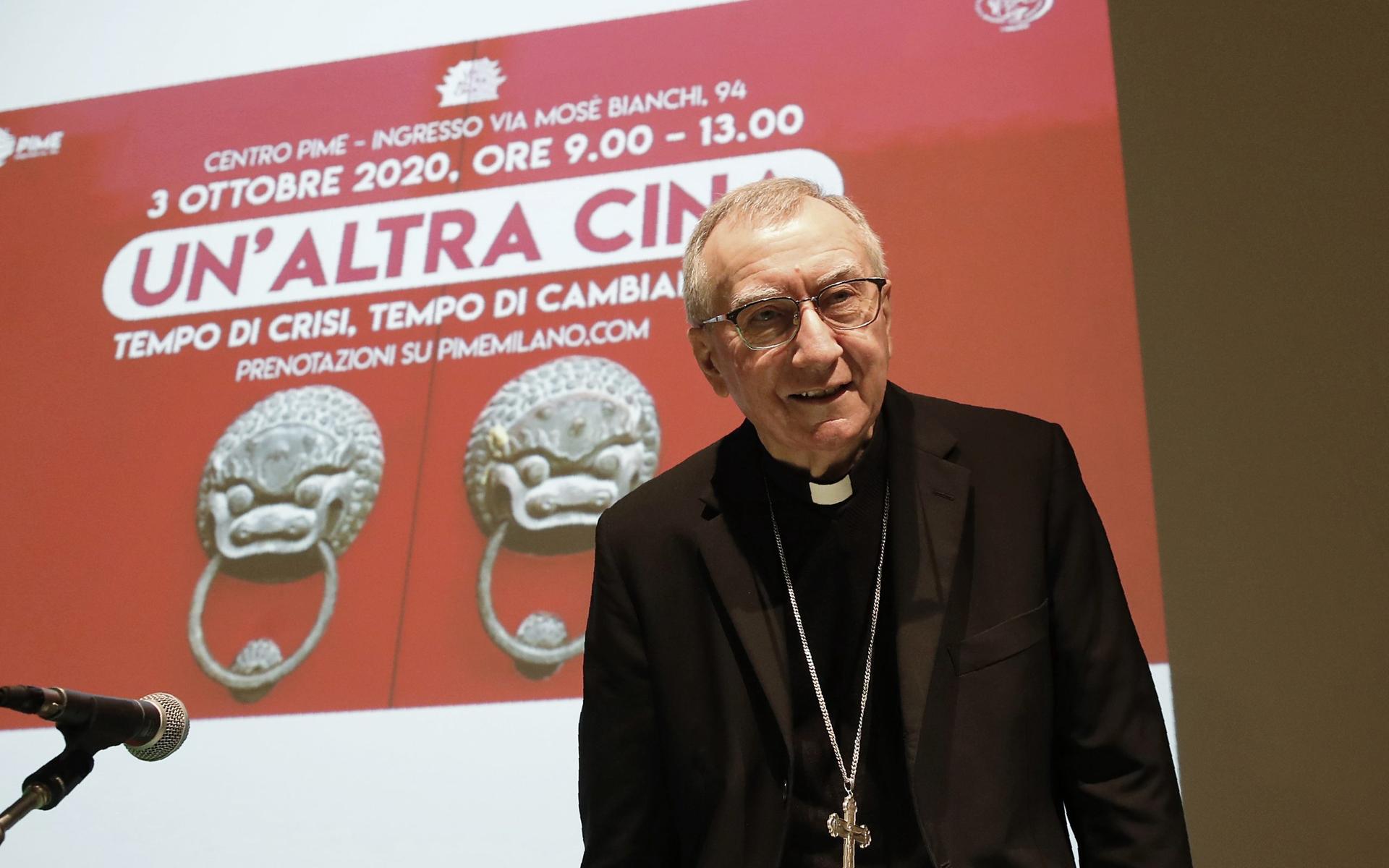ROME — The Vatican doubled down Saturday on its intent to pursue continued dialogue with China over bishop nominations, defending a deal it did with the Chinese government in 2018 as necessary to the life of the Catholic Church there, over strong U.S. objections.
The Vatican secretary of state, Cardinal Pietro Parolin, gave the Holy See’s most authoritative and comprehensive response to critics of the extended accord during a speech marking the 150th anniversary of the arrival in China of Catholic missionaries from an Italian religious order.
Parolin insisted that popes as far back as Pius XII had tried to reopen a path of dialogue with Beijing after the communists came to power and expelled foreign missionaries. And he confirmed that Emeritus Pope Benedict XVI had approved the draft accord that the Vatican under Pope Francis eventually signed in 2018.
Parolin’s assertion that Benedict had approved the draft is significant and was aimed at silencing some of Francis’s conservative critics, many of whom are nostalgic for Benedict’s conservative papacy and have used the China agreement to undermine Francis.
The Vatican is seeking to extend the deal with China, which envisages a process of dialogue in selecting bishops. It signed it in 2018 in hopes it would help unite China’s Catholics, who for seven decades have been split between those belonging to an official, state-sanctioned church and an underground church loyal to Rome.
The question of bishop nominations has long vexed Vatican-China relations, with the Holy See insisting on the pope’s divine right to name the successors of the apostles and Beijing considering such nominations foreign infringement on its sovereignty.
The Vatican has defended the 2018 accord against criticism that Francis sold out the underground faithful, saying the deal was necessary to prevent an even worse schism in the Chinese church after China named bishops without the pope’s consent.
“Benedict XVI approved the draft agreement on the nomination of bishops in China that only in 2018 it was possible to sign,” Parolin said. He added that the accord only covers the nomination of bishops and does not in any way touch on other aspects of the life of the church in China, much less political issues.
He called it a “point of departure” and said it was worth extending because two years was too short a period of time to evaluate its worth.
“There have been some results, but in order for the dialogue to have more consistent fruits, it’s necessary to continue,” he said. “From the Holy See’s side, there is the will to prolong the accord on an experimental basis, as it has been done, in order to verify its use.”
It was the third time this week that Parolin has had to defend the accord, after a tense visit from U.S. Secretary of State Mike Pompeo to the Vatican. During a speech on religious liberty in Rome and in an essay penned before his arrival, Pompeo made clear U.S. objections to the accord and urged the Vatican to join the U.S. in denouncing China’s crackdown on religious and ethnic minorities, Catholics among them.
“This isn’t about the United States versus China. This is about tyranny,” Pompeo told reporters en route home from Croatia on Friday, at the end of a European trip to try to rally European support for the tough U.S. line on Beijing that has accelerated amid the coronavirus pandemic and ahead of the Nov. 3 election.
In his speech Saturday, Parolin used the occasion to acknowledge errors in the “imperialist” way some Catholic missionaries operated in the past and even the Holy See’s own decision to name only non-Chinese bishops at the start, a clear nod to decades of Chinese complaints about foreign interference by the church.
Parolin was speaking at the Milan headquarters of the Pontifical Institute of Foreign Missions, a religious order that first sent Italian missionaries to mainland China in 1870. All foreign missionaries were expelled, and diplomatic relations with the Holy See severed, after Chinese communists came to power in the 1950s.













